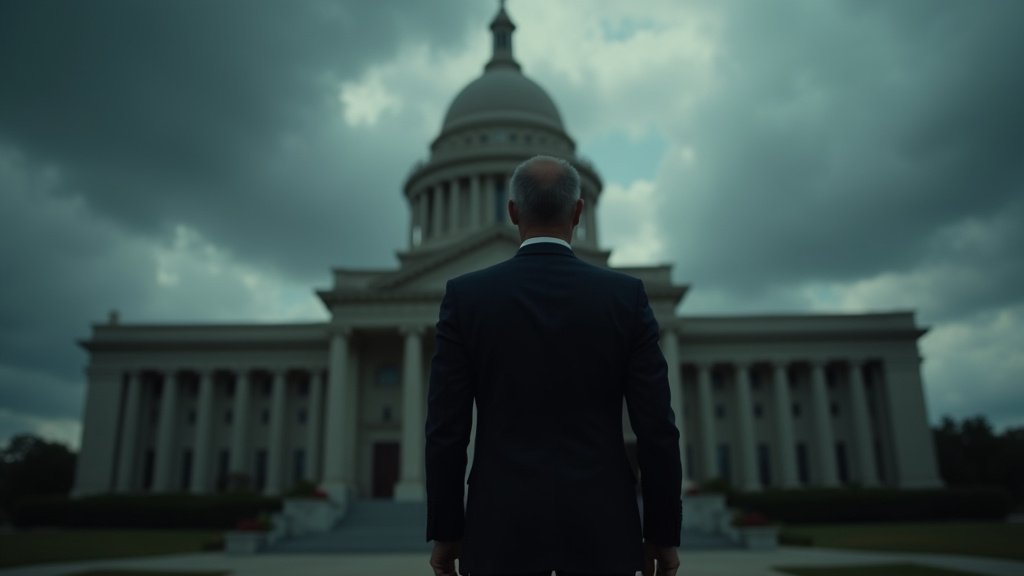In a move that has sparked widespread condemnation and legal debate, Texas Governor Greg Abbott has issued a proclamation designating the Council on American-Islamic Relations (CAIR) and the Muslim Brotherhood as “foreign terrorist organizations” and “transnational criminal organizations,” a controversial Texas Muslim Designation. This unprecedented state-level Texas Muslim Designation prohibits the groups and their affiliates from acquiring land in Texas and empowers the state’s Attorney General to pursue legal action to shut them down. The proclamation, dated November 18, 2025, cites allegations that these groups support terrorism globally and aim to impose Sharia law, a claim vehemently denied by CAIR. This action represents a significant escalation of Abbott’s confrontational stance toward Muslim organizations in the state and is currently a trending topic across Texas news outlets, highlighting concerns about Islamophobia concerns.
Governor Abbott’s Proclamation and the Texas Muslim Designation
Governor Abbott’s proclamation leverages Texas state law, including a new piece of legislation signed earlier in 2025, Senate Bill 17, which restricts “hostile foreign adversaries” and transnational criminal organizations from purchasing property within the state. The proclamation asserts that the Muslim Brotherhood and CAIR pose a threat to Texas’s security and residents, alleging their leaders promote the forcible imposition of Sharia law and that CAIR is an “effective front group for Hamas in the United States”. The Texas Muslim Designation allows for “heightened enforcement” against these organizations and their members. The proclamation also references concerns about alleged extremist networks tied to the Muslim Brotherhood and past accusations linking CAIR to groups with ties to Hamas, leading to debates about CAIR terrorist allegations.
Understanding CAIR and the Muslim Brotherhood in Texas
The Council on American-Islamic Relations (CAIR) is described as the largest Muslim civil rights and advocacy organization in the United States, founded in 1994 with the mission to promote justice, protect civil rights, and empower American Muslims. CAIR has consistently condemned all forms of unjust violence, including terrorism, and has a history of defending free speech and religious freedom for Muslims, making the Texas Muslim Designation particularly concerning for Muslim civil rights.
The Muslim Brotherhood, a multinational organization founded in Egypt in the 1920s, has a complex global presence. While some of its offshoots and affiliates, such as Hamas, are designated terrorist organizations by the U.S. government, the Muslim Brotherhood itself is not officially listed as a foreign terrorist organization by the U.S. State Department. Several countries, including Egypt, Saudi Arabia, and the United Arab Emirates, have designated the group as a terrorist organization. The Muslim Brotherhood Texas presence is now under scrutiny due to the Texas Muslim Designation, though the group officially renounced violence in the 1970s, according to some reports, though its ideology and impact remain subjects of international debate.
The Authority Divide: State vs. Federal Authority in Texas Muslim Designation
A critical aspect of this development is the distinction between state and federal authority in the context of a Texas Muslim Designation. U.S. states do not possess the legal authority to designate foreign terrorist organizations; this power rests solely with the U.S. Secretary of State, following consultation with other federal agencies. Therefore, Governor Abbott’s Texas Muslim Designation, while impactful within Texas regarding land acquisition and potential state-level enforcement, does not carry the same weight or federal consequences as a U.S. government designation. Legal experts and CAIR itself have pointed out the dubious legal standing of such a unilateral state declaration, questioning the state vs federal authority.
A Pattern of Scrutiny and the EPIC City Context in Texas
This proclamation follows a period of increased scrutiny by Texas officials, including Governor Abbott, towards Muslim communities and developments in the state, raising Islamophobia concerns. Notably, this action occurs months after state and federal investigations into a proposed Muslim-centered community development near Dallas, known as EPIC City. Governor Abbott had previously labeled this development a “sharia compound” and launched multiple investigations, though the U.S. Department of Justice later closed its civil rights investigation into the project without filing charges. Abbott also signed legislation in March 2025 specifically targeting “Sharia compounds” and restricting foreign adversaries from land acquisition, laws now invoked in his Texas Muslim Designation of CAIR and the Muslim Brotherhood, a move that seems to echo the Greg Abbott proclamation sentiment.
Reactions and Future Implications of the Texas Muslim Designation
CAIR has vehemently condemned Abbott’s proclamation, calling it a “publicity stunt masquerading as a proclamation” with “no basis in fact or law.” The organization accuses Abbott of promoting anti-Muslim bigotry and stoking “anti-Muslim hysteria” to smear American Muslims critical of Israeli government policies, asserting they have successfully sued Abbott three times previously for First Amendment violations. CAIR has stated its legal team is preparing to take appropriate action to address the Texas Muslim Designation.
Civil rights advocates and Muslim community leaders have expressed concerns that such rhetoric and state actions could incite Islamophobia and lead to increased violence against Muslim individuals and institutions in Texas. The designations raise questions about the balance between state security measures and the protection of civil liberties and religious freedom for all Texans, impacting Muslim civil rights.
Conclusion on the Texas Muslim Designation
Governor Greg Abbott’s Texas Muslim Designation of CAIR and the Muslim Brotherhood as terrorist organizations under state law is a highly contentious move that highlights ongoing tensions in Texas regarding religious freedom and national security. While the proclamation allows Texas to impose restrictions on land acquisition and potentially pursue legal action, its authority is limited by the federal government’s exclusive power to designate foreign terrorist organizations. The designations have drawn sharp criticism from CAIR and civil rights groups, who plan to challenge the action legally, setting the stage for a significant legal and political battle in the Lone Star State. This trending news continues to unfold, with potential implications for the civil rights landscape in Texas, and the debate over a Texas Muslim Designation will likely persist.






